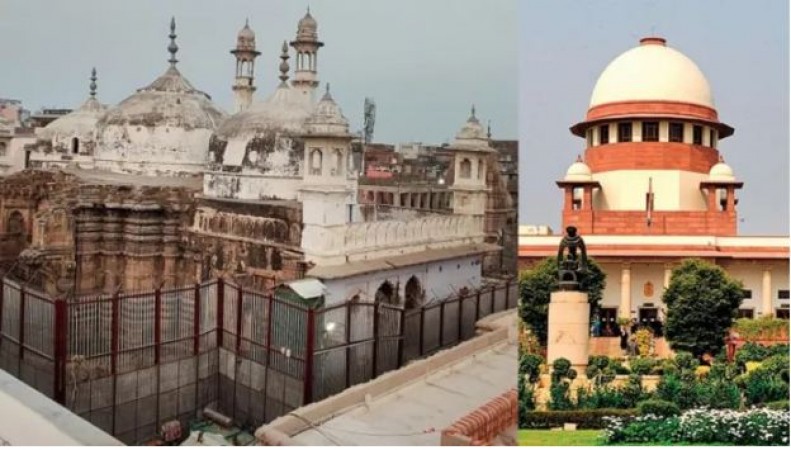
New Delhi: BJP leader and lawyer Ashwini Upadhyay has filed a petition in the apex court seeking to make himself a party in the Gyanvapi case. Along with this, he has said that the Places of Worship Act of 1991 does not apply to mosques. He said that the matter is clearly related to their right to religious freedom. For centuries, Lord Adi Visheshwar has been worshiped there. This property has always been his. Ashwini Upadhyay said that their right to property cannot be taken away under any circumstances. He said that once Prana Pratishtha is established in any temple, then there is no change in it by destroying some parts of it or changing its form.
The lawyer said that this does not change the religious nature of the temple. This can happen only where the idols installed in the temple are not shifted from there as part of the process of immersion. He has also argued in his petition that even according to Islamic principles, a building built by demolishing a temple cannot be a mosque. He said that the Places of Worship Act of 1991 does not prevent any religious place from deciding the nature. In his petition, he has sought to quash the petition of the Masjid Committee, which has been filed against the survey of the Gyanvapi Masjid.
He further said that the application filed against Gyanvapi's survey violates his fundamental right. Ashwini Upadhyay, while presenting his side, said that, 'The right to justice of the applicant has been guaranteed in Article 14 of the Constitution. Along with this, the right to dignity is mentioned in Article 21. Not only this, the right to religious freedom is mentioned in Article 25. The right of revival of religious places is given in Article 26. Along with this, the right to follow culture is in Article 29. All these are related to this petition.
He further said that the temple is a place of worship, as the deities reside there. Therefore a temple remains a temple forever and its religious character can never be changed. Whereas the mosque is only a place of prayer. Therefore, it is shifted to Gulf countries or it can also be broken. Often there is a road, school, hospital or any other public place where it is required to do so. He said that the religious character of a mosque and a temple is completely different. In such a situation, the 1991 Act does not apply to the mosque.
Centre likely to keep to its budget deficit target: RBI Shaktikanta Das